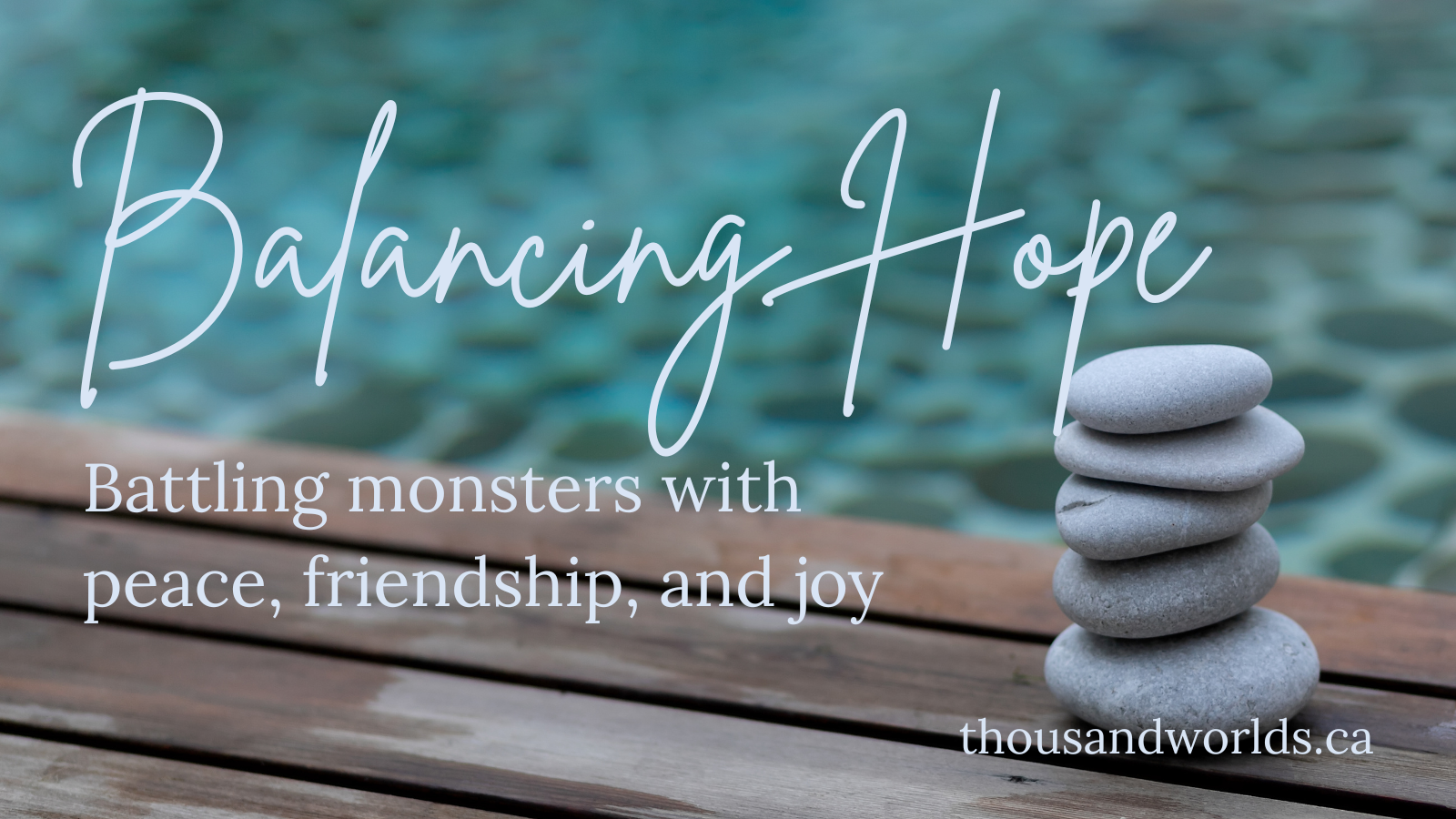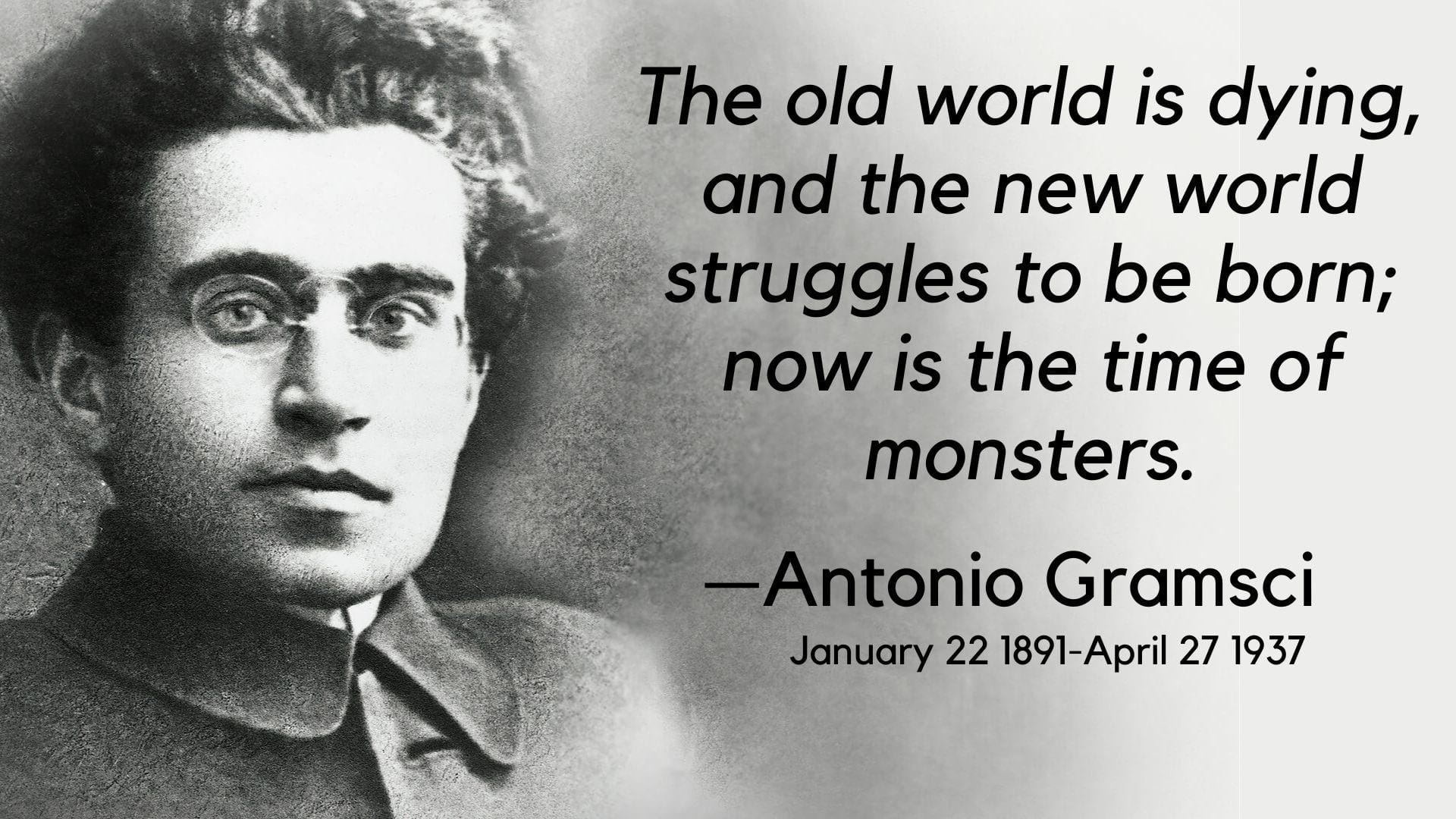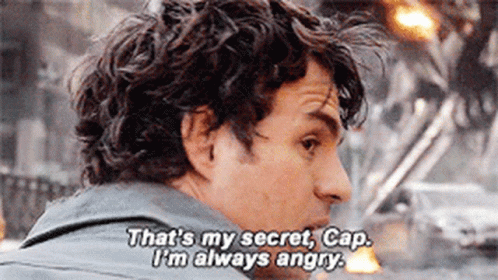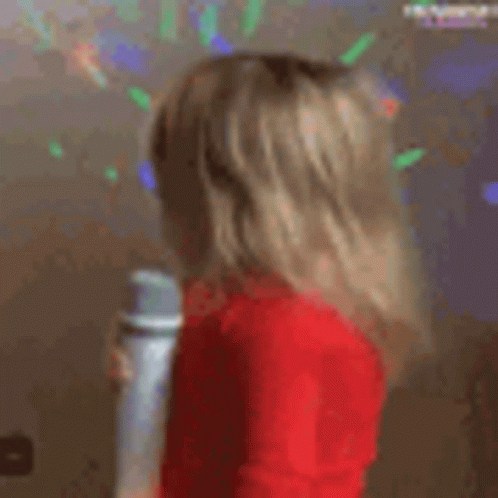balancing hope

Last time we had a story about how we got dogs, who turned out to be a gift from a giant in spirit world to help us out with the monsters we had called forth in a misguided attempt to deal with hunger. Fat lot of good that did, in the very next story the monster has a pet dog. I love their furry little faces but clearly they aren't as choosy in their friendships as one might hope.
I've gotten ahead of myself. And I apologize for the delay, but I was out east enjoying the ocean and a visit with family. I'm cursed with writers' brain so now everything I hear and do becomes fodder for my writing, this blogpost will be no exception.
This week's story, When a Windigo was Slain, comes from part 2 of volume 7 of the William Jones archive. There are many stories about killing these creatures, but this particular one I've only seen in this archive.

Back in the days when people lived more comfortably with the manitouwag (the suffix -wag indicates the plural form) the people did miracles regularly, engaging with the spiritual and natural worlds with intention and purpose. Even so, it did not always make them kind and some people lived on the margins of their villages, part of the community but not included. One of these was a man with a slight hunch who lived with his wife and her family, which was typical for Anishinaabe communities. He didn't get invited to things, didn't get food when it was available, and was generally ignored.
Until he wasn't.
The problem that drove them to this person's door, who was not exactly an outcast but not exactly welcome either, was a monster that had made it's way to their community with big thundering steps. Nothing they did helped. Even making a fire was beyond them at this point so they turned to this man who lived at the edges of their community.
"Oh sure," said the man with the slight hunch in his back. "Now you think of me." They had the sense not to come empty-handed but he rejected their gifts. His wife quickly made him some moccasins and he went outside to face the monster. He warned them that they would hear the monster first but then they would hear him, and off into the pines he went.
The monster finally arrived, metal staff in hand, and the man stepped out from his hiding place, matching the monster in size with both of them standing with their heads in the clouds. He grabbed the staff and flung it into the lake, crushing all the ice. The monster screamed, the people fainted, and the sky was rent with the sound of the man's cry. The dog cut his losses and took off during this fight, which the monster, revealed to be a woman, lost and the story ends with a comment that the people were now living in fear that her elder brother would come since her scream had been so loud.

Now the fact that they couldn't make fire was interesting to me because most ceremonies involve fire in some capacity and fire keeping is kind of a big deal from a spiritual perspective because fire is a gateway to that world that layers with our own. You want somebody trustworthy who understands the nature of such a responsibility managing that gateway. Perhaps the people had become careless in their engagement with the spiritual realm, something that often happens when we get overly comfortable and forget who/what we're dealing with. Perhaps the manitouwag had stepped back from them and this inability to make fire was a symptom of a broader problem in this community. Such a withdrawal would made them vulnerable to the monster.
It really is the time of monsters isn't it. Gramsci wrote that back in the 20s, so they've been walking among us for a while. I just finished a book about the global history of concentration camps that spans about the last 100 years and it's a fascinating read in part that connects with Gramsci's observation because contemporary concentration camps began during the years of Gramsci's childhood. This time between worlds when the old world of imperial land-grabs is coming to an end and we're not yet sure what we're going to wind up with. The dust is still settling from decisions made in board rooms and ballrooms about how to carve up the world. Concentration camps aren't always about mass extermination, that was a Nazi innovation, but they are always about mass relocation and detention with subsequent policies of starvation and torture directed towards population groups imagined as a threat and stripped of their humanity along with their citizenship.

And while we're talking about these monsters, you'll recall that in Basil Johnston's story the man takes a potion and then sees others as beavers instead of people which allows him to justify consuming them. Isn't that what we're talking about? Political sleight of hand stripping people of their humanity and then consuming them in the fires of racist nationalisms.
But I promised you some content from the east coast and it does connect with this story because what ultimately saved this community? That man with the slight hunch on his back who seems to have been a giant or manitou in disguise.
One of the places we went was the Boxwood Festival in Lunenburg, Nova Scotia and the woman who lead the flute choir (a delightful feature of the festival where flute players practice all week for the final concert) talked about how awful everything is. Her prescription was:
Peace + Friendship + Joy = Hope
And yeah that sounds pretty cheesy but also awesome because it's a lovely kind of calculus when you parse it all out in a meaningful way. Peace comes from wrestling through conflict, not just pretending that everything is ok. Irenees.net, a website of resources for peace, offers a discussion about a Just Peace that includes four pillars: autonomy, identities, renouncement (sacrifices from all parties in service to peace), and rule. It is something worked towards by equals that recognizes difference, not something imposed by those with something to gain and little to lose. A Just Peace is collaborative and consensus driven and it is going to look different in different places. This kind of peace makes organizing more effective by helping us identify meaningful goals and developing a healthier organizing culture.
I wrote a whole book about kinship, mostly about the history that got us to this spot and how we might turn this around, and I do land on relationships as a path forward. When I give remarks I often apologize for the bait and switch, because it sounds like a book about making kin with Indigenous people and what you get is 8 chapters about how you can become the kind of people we want to be kin with. So yes to friendship in this math because building friendships on the kind of firm foundation that peace rests on is what will pull us forward. And friendship rather than just relationship because we need to cut each other a lot of slack and we will do that for friends in ways we won't do that for others. But also friendship because we need friends as well as comrades.
Comrades are people we organize with, but they aren't always friends. This panel on Revolutionary Accompaniment from the Socialism 2025 conference gets at the difference in these relationships beautifully and the importance of having a circle of friends you can rely on for care and laughter. When I was in Vancouver last year I stayed with a woman who uses a basement suite as movement space, offering a place to stay in the midst of out of control hotel rooms. Eman Abdelhadi talked about the importance of these kind of spaces for her in that panel on accompaniment. Self care isn't enough. We need to take care of each other.

I did a lot of interviews for Becoming Kin and I field a lot of questions about the book, but one question from Mary Hines on CBC's Tapestry was unexpected. She wanted me to explain a note in my acknowledgements where I said that Daniel Heath Justice was Thor to my Hulk. Daniel changed my perspective on Thor: Ragnarok and basically started my fixation on the MCU. I very quickly gravitated towards the Hulk and that explains a lot of my social media presence. What am I angry about today. There's a lot to be angry about. So the Hulk is clearly me. Daniel brings joy, much like Thor in the Ragnarok movie. Thor isn't always a joyful character, in the two earlier films he's a little darker but Taika Watiti brought out the humour in his character and it balances Hulk very well in Ragnarok, it actually makes Hulk a little less angry, helps him to use his anger rather than just exploding. Daniel did that for me on social media, helped me be more measured and less reactive. Thor to my Hulk.
That's what we need in our movements. We need people like Daniel who remind us about joy and that's what I found in my trip east. Not because I spent that time with movement people planning things while smiling and laughing, although that did happen and is great too, but because I spent time with people who made music together. We don't have a lot of spaces in our world where people engage socially across various ages and other differences. They didn't really talk about much except about the tunes and people they had in common. And damn it felt good.
We talked about the connections between us, and as conversations with the Irish often go, we commiserated about the ways that colonial power harms Indigenous people wherever it finds us from Ireland to the Americas to Palestine. One of the musicians talked about a song he had written to go with a pair of children's shoes that commemorate the journey of Irish children fleeing the famine. That connected immediately with our own vigils with children's shoes in 2021. So I invited him (turned out he lives in Niagara!) to participate in the local book launch in September. And there was an evening where we did hang out with movement people. Who, in the midst of other discussions, were also planning a picnic to just hang out together and enjoy each other's company.

So yes. We need joy. We need spaces where we can gather together and make music or learn skills, eat snacks in the sunshine or just go for a hike. There is a local group organizing hikes to build friendships and connection to place. We need more of this. We tend to elevate the big organizers, the people who work on campaigns for higher wages or permanent resident status for migrant workers or any number of things but don't forget the people who provide care and joy and the things that make life meaningful. It's not enough to be angry all the time. Banner was burning himself out. We need joy.
Putting all these things together. A just peace, along with friends you can count on and joyful moments because without friends and joy what are we doing any of this for? All together these things help us to find hope and that's what this community in the story needed, that's what it ends with. They need hope because they're still afraid. The monster might be gone but she wasn't the only one and whatever wins we achieve against the monsters we fight, it isn't the only win that we need. There will be more and we can't afford to exclude people the way they had excluded the man with the slight hump.
Conversely, too often movements rely in unhealthy ways on marginalized communities. It is true that Indigenous people protect the bulk of the world's biodiversity, but looking to us to "save the world" is unfair, we didn't create this. We should listen to marginalized activists, but we should also be taking responsibility for what is ours rather than expecting them to rescue us and then calling that inclusion. The man with the slight hump (quite possibly a giant or manitou living among them) did rescue them, but the story isn't over and placing all your hope in a single hero to rescue you again and again might make for a good movie but it is a precarious foundation. Instead of learning how to work together, such a community becomes invested in appeasing the hero who may become just as abusive as the monster they previously feared.
Hope may be a discipline, as Mariame Kaba often says, but it isn't something we can just choose to believe. It has to rest on something. Peace, friendship, and joy is a pretty good foundation.

Excerpt from Booklist, a starred review which means the book is "outstanding in its genre": A fascinating advanced seminar about how to think, read, think about reading, and think about Indigenous lives.”
Preorder your copy of Bad Indians Book Club today in the US at Bookshop.org, Amazon, Barnes and Noble, and in Canada: Indigenous owned GoodMinds, as well as Amazon, indie books, and Chapters Indigo. Get it wherever you get your books.
And if you want me to zoom into your local bookstore or bookclub? Talk with you on your podcast? I can do that. patty.krawec@gmail.com For larger professional settings you can email Rob Firing at rob@transatlanticagency.com
And I've got some launch events!
September 16, 7pm St. Catharines Ontario: Finding Safety in a Colonial State at the Marilyn I Walker building with Dr. Robyn Bourgeois and Khadija Hammuda.
September 19, 7pm Toronto Ontario: Refusing Patriarchy at Roncesvalles United Church co-sponsored with Another Story Books, with Joy Henderson and Sean Carson Kinsella.
October 2, 7pm in Vancouver British Columbia: Indigenous Geographies with Dr. Deondre Smiles at Massy Books.
Monsters:
One Long Night: A Global History of Concentration Camps by Andrea Pitzer is a fascinating read about the use of concentration camps in the modern world to contain and relocate people considered to be internal threats. It begins in Cuba in the late 1800s and ends there as well with the camp in Guantánamo Bay. I appreciate that she recognizes reservations as a precursor to contemporary camps, although I would argue that they meet her definition of "wherever a government holds groups of civilians outside the normal legal process - sometimes to segregate people considered foreigners or outsiders - sometimes to punish." What I found baffling about the book is her exclusion of Palestine and the occupied territories. It is published in 2017, but conditions of Gaza have long met this criteria and as she mentions nearby countries and writes extensively about the Nazi system it feels like a deliberate choice not to mention Israel. The book does contain a lot of valuable insight even if it is at times unevenly weighted. The sad fact is that this 420 page book could easily be double this length.
Peace:
A collection of books about working together in broad coalitions for a just peace. Safety Through Solidarity: A Radical Guide to Fighting Antisemitism by Shane Burley and Ben Lorber. Solidarity is the Political Version of Love: Lessons from Jewish Anti-Zionist Organizing by Rebecca Vilkomerson and Alissa Wise. Let This Radicalize You by Kelly Hayes and Mariame Kaba. Fight Like Hell: The Untold History of American Labor by Kim Kelly.
Friendship:
The Poppy War Trilogy by RF Kuang is sprawling. We got it as an audio book to listen to on our drive to and from the east coast. There's still 20 hours to go. These are RF Kuang's first books, started when she was 19 years old and that does show. Her later books (Babel and Yellowface) are more sophisticated and I often found myself recognizing threads from familiar movies and general tropes but even so, it's a great read or listen as Rin navigates a gateway to the gods and her relationship with the power this brings. It's full of friends and frenemies, organizing rebellions, and confronting colonialism traveling, as always, with missionaries.
While we're thinking about friends we have to consider Rehearsals for Living by Robyn Maynard and Leanne Betasamosake Simpson. Written as a series of letters between a Black woman and a Michi Saagig Nishnawbekwe navigating their own relationship, the broader relationships between our communities, and the realities of living beneath a colonial state.
Pre-order Read This When Things Fall Apart by Kelly Hayes. It is a "collection of letters and organizers on the frontlines in catastrophic times." Heartbreak is inevitable. We may lose more than we win. But we do it together, because as Kelly often says, the good we do matters.
Joy:
Listen. The Actual Star by Monica Byrne brings me joy. I can't even tell you how many times I've read this now. Same with Fables and Spells by adrienne maree brown that I recommended last month too. As Many Ships As Stars by Weyodi OldBear is a wonderful space opera in which some Comanche steal space ships and head off for the great unknown. Look at that. Fiction brings me joy. Good to remember.
And don't forget to join up with the Nii'kinaaganaa Foundation. Every month we collect funds from people living on Indigenous land and redistribute them to Indigenous people and organzers. You can find out more information on the website which is now powered by ghost, which means that you can become a subscriber there just like you are here!

